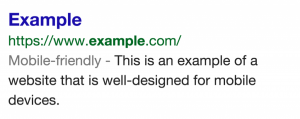— April 29, 2018

EivindPedersen / Pixabay
Thanks in part to the excitement generated from its skyrocketing price, Bitcoin (along with similar types of digital currency) is gradually entering the mainstream. Consumers are scrambling to get in on the action. They are driving up the price of GPUs with their rush to establish new mining rigs. National governments around the world are debating the best way to regulate cryptocurrency. But, there’s another player on the stage to advance the acceptance and use of Bitcoin. This player is merchants. And, they may have more power to influence the future than consumers or governments. If you’re a business owner, it may be time to consider whether you should accept Bitcoin along with conventional payment methods like cash or credit cards.
The question is, what’s really in it for you when you accept Bitcoin?
Businesses That Currently Accept Bitcoin
Let’s start by taking a look at some examples of companies that have already taken this step forward. By the fourth quarter of 2017, there were more than 11,000 businesses accepting Bitcoin as a valid method of payment.
What’s really interesting here isn’t the sheer number of businesses accepting Bitcoin as payments. It’s the types of businesses accepting it. As you might expect, some less-than-mainstream websites have been accepting Bitcoin for years, including known pirating hub The Pirate Bay. Overstock, one of the biggest online marketplaces, has also made changes to accept Bitcoin. Even smaller, more niche businesses like Kitchen Cabinet Kings have started accepting Bitcoin.
Why are all these companies willing to accept this potentially volatile currency?
Why Would Your Business Make the Change?
These are some of the most important motivations driving businesses to accept more cryptocurrency:
-
Greater security.
The hallmark of Bitcoin and any other blockchain-driven currency is the security of their transactions. Every peer-to-peer exchange of Bitcoin is recorded on a public ledger. The identities of the recipients remain obscured. And, cryptographic hashes prevent any prying eyes from viewing or manipulating the transaction. In an era with increasing online threats and consumer trust nearing all-time lows, it’s more important than ever for businesses to protect their customers’ security. Bitcoin is one way to do that.
-
Lower transaction fees.
Bitcoin transaction fees have been almost as volatile as the price of Bitcoin. Originally, a main selling point of the cryptocurrency was its near-zero transaction fees. Then, as popularity increased, transaction fees spiked. This has forced some businesses (like Valve’s Steam platform) to stop accepting the payment method. Fortunately, that temporary pricing crisis seems to have cooled. Bitcoin transaction fees have since settled down to less than a dollar. This makes it more cost-efficient than some other methods of payment.
-
Brand reputation.
Accepting Bitcoin may also be a positive event for your brand reputation. For example, if you’re a high-tech company with an audience comprised of tech enthusiasts, accepting the digital currency could make your brand look more progressive and forward-thinking. It’s a signal that you’re prepared to take risks if it means adopting something better. Also, it may illustrate you as a leader in your industry. This is especially true if other companies like yours haven’t yet started accepting Bitcoin as currency.
-
PR opportunities.
Press releases are valuable opportunities to spread awareness of your brand. Starting to accept cryptocurrency could be a key reason to write one. Formally announcing your acceptance of Bitcoin could be a landmark event for your company. If you know how to spin it, it could help you shape an entire advertising campaign around your efforts.
-
Bitcoin supporters.
The Bitcoin community is a large and passionate one. People who invest in Bitcoin, or mine it, have skin in the game. They are willing and excited to make changes to their buying habits if it means making the cryptocurrency more popular. Accepting Bitcoin is a way to show your appreciation for the community. It may help you increase sales with this audience. This effect can be compounded if your business (or representatives from it) are active in the Bitcoin community.
-
Brand allegiance.
Don’t forget—you aren’t the only company in your industry thinking about adopting Bitcoin. If most or all of your competitors start accepting Bitcoin payments before you do, Bitcoin enthusiasts may change their brand allegiance. Even worse, you may look like you’ve fallen behind the times. This is especially true as the popularity of cryptocurrency grows. Adopting Bitcoin payments early is a defensive measure to protect you against these outcomes.
The Disadvantages
Of course, there are some disadvantages to accepting Bitcoin for payments within your business:
- Bitcoin is infamous for its wild price swings, which took the price on a tour of unexpected ups and downs from the beginning of 2017 through present day. Accepting Bitcoin payments while the currency is trading high may result in a net loss if the price of the currency falls. However, there are a few things to keep in mind about this disadvantage. For starters, Bitcoin volatility has cooled off in the past few months, rivaling the stock market in stability. On top of that, most Bitcoin payment providers allow you to convert Bitcoin instantly into some other currency, meaning you’ll never be forced to hold Bitcoin for longer than a few seconds.
- Some business owners are reluctant to accept Bitcoin because they don’t want to add any complexity to their already-complex payment processing system. However, accepting Bitcoin is usually as simple as adding another module to your website, or signing up for an inexpensive payment service. Don’t attempt to estimate the complexity until you’ve gotten a preview of what the process is really like.
- As a business decision maker, Bitcoin payments probably aren’t your highest priority. The presence of Bitcoin payments isn’t making or breaking many consumer purchasing decisions right now, so its adoption has fallen to the side in favor of more pressing company priorities.
How to Get Started
If your business operates online and uses an existing platform, there may be a module you can activate to allow your visitors to pay using Bitcoin. For example, Shopify offers this kind of functionality to its customers. You could also enlist the help of a third-party service provider (like Coinbase or BitPay) to process your payments and exchange Bitcoin for more traditional forms of currency.
Otherwise, you can get set up with your own Bitcoin wallet and create functionality on your website to process orders manually. This last option is the most complex. It will take the longest time to set up. However, it also offers you the most flexibility. Therefore, you can build the feature the way you want it.
The Future
It’s not clear what the future holds for merchants who accept Bitcoin. However, the downsides are minimal and the advantages are potentially very powerful. If your business operates online, or if you’re especially vulnerable to lagging behind the competition, accepting Bitcoin could be a cost-effective way to demonstrate your leadership in the industry. If you’re pro-cryptocurrency and want to play a bigger role in influencing digital currency’s acceptance, accepting it as a payment form at your business could be an important next step.
Business & Finance Articles on Business 2 Community
(43)
Report Post





